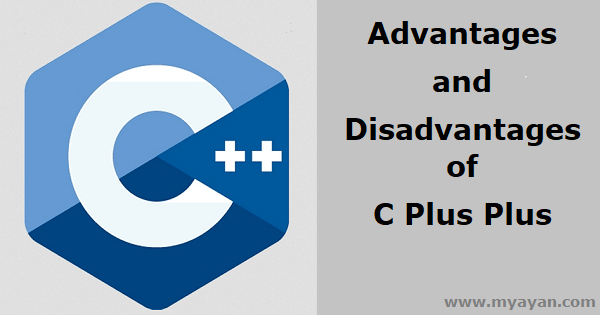
C++ is a powerful programming language that offers a range of features for developing a variety of applications, from system software to high-performance applications and games. However, like any programming language, C++ has its own set of advantages and disadvantages.
Advantages of C++:
Performance: C++ is known for its high performance, making it suitable for applications that require efficient memory usage and fast execution. It allows low-level manipulation of data, providing better control over system resources.
Versatility: C++ is a versatile language that supports both procedural and object-oriented programming paradigms. This versatility allows developers to choose the style that best fits their project requirements.
Object-Oriented Programming (OOP): C++ supports OOP principles, including encapsulation, inheritance, and polymorphism. This makes it easier to design and organize complex systems, promoting code reuse and maintainability.
Standard Template Library (STL): C++ comes with a powerful and extensive Standard Template Library that provides a collection of reusable algorithms and data structures. This simplifies development and enhances code efficiency.
Low-level Manipulation: C++ allows low-level memory manipulation through pointers, which provides a high degree of control over the hardware and memory resources. This is particularly useful in systems programming.
Community Support: C++ has a large and active community of developers. This means that there are numerous online resources, forums, and libraries available for support, making it easier for developers to find solutions to problems.
Compatibility: C++ is often used in systems programming, game development, embedded systems, and other performance-critical applications. Its ability to interact with low-level hardware and other languages (through bindings) makes it a suitable choice in various domains.
Efficient Resource Management: C++ allows manual memory management, which can be an advantage in situations where fine-grained control over memory allocation and deallocation is necessary.
Disadvantages of C++:
Complexity: C++ can be more complex and harder to learn compared to some other programming languages. Its extensive feature set, including pointers and manual memory management, can make it challenging for beginners.
Lack of Automatic Memory Management: While manual memory management provides control, it also introduces the risk of memory leaks and dangling pointers. This can lead to bugs that are harder to trace and fix.
Security Concerns: The low-level nature of C++ allows for direct memory manipulation, which can lead to security vulnerabilities if not handled carefully. Developers need to be mindful of issues like buffer overflows and other potential security risks.
Slower Development Process: Writing code in C++ may require more time and lines of code compared to languages with higher-level abstractions. This can result in a slower development process.
No Built-in Garbage Collection: C++ does not have built-in garbage collection, which means developers are responsible for managing memory manually. This can be error-prone and lead to memory-related issues if not handled correctly.
Absence of Reflection: C++ lacks built-in reflection capabilities, making it more challenging to perform certain runtime operations such as dynamic type identification.
Limited Standardization Across Compilers: While there is a C++ standard, different compilers may implement certain features differently, leading to potential portability issues across different platforms.
Steep Learning Curve: Due to its complexity and the need to understand low-level concepts, C++ has a steeper learning curve, especially for beginners in programming.
In summary, C++ is a powerful and versatile programming language with strong performance capabilities. However, its complexity and potential for manual memory management errors make it important for developers to weigh the advantages against the challenges based on the specific requirements of their projects.
Thank you.
